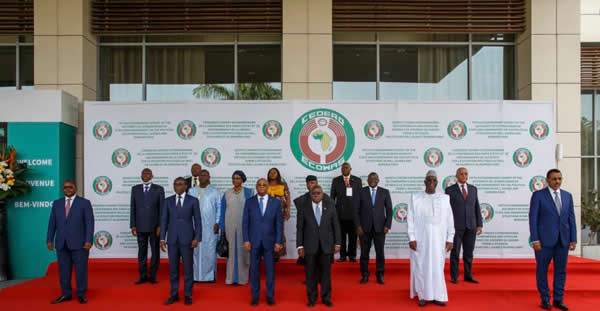
The Authority of ECOWAS Heads of State and Government has ended its extraordinary summit convened in the Nigerian capital Abuja to discuss the Political, Peace and Security situation in the ECOWAS sub-region.
The meeting chaired by President Bola Ahmed Tinubu of Nigeria was attended by President Patrice Talon of Benin Republic, President Alassane Ouattara of Côte d’Ivoire, President Nana Akufo-Addo of Ghana, President Umaro Embalo Siseco of Guinea Bissau, President Faure Gnassingbé Eyadéma of Togo, President Macky Sall of Senegal and President James Madaa Bio of Sierra Leone. The Gambia was represented by Vice President Muhammad Jallow and Cabo Verde and Liberia by their Ambassadors in Abuja.
A communique was issued at the end of the extraordinary summit.
The Economic Community of West African States (ECOWAS) was established when the ECOWAS Treaty was signed by 15 West African Heads of State and Government on the 28th of May 1975 in Lagos, Nigeria.
The ECOWAS region spans an area of 5.2 million square kilometres. The Member States are Benin, Burkina Faso, Cabo Verde, Côte d’Ivoire, The Gambia, Ghana, Guinea, Guinea Bissau, Liberia, Mali, Niger, Nigeria, Sierra Leone, Senegal and Togo.
Considered one of the pillars of the African Economic Community, ECOWAS was set up to promote cooperation and integration, leading to the establishment of an economic union in West Africa to raise the living standards of its peoples, and to maintain and enhance economic stability, foster relations-among Member States and contribute to the progress and development of the African continent.
ECOWAS is implementing critical and strategic programmes that will deepen cohesion and progressively eliminate identified barriers to full integration. In this way, the estimated 300 million citizens of the community can ultimately take ownership of the realization of the new vision of moving from an ECOWAS of States to an “ECOWAS of the People: Peace and Prosperity to All” by 2050.
Source: graphic.com.gh























